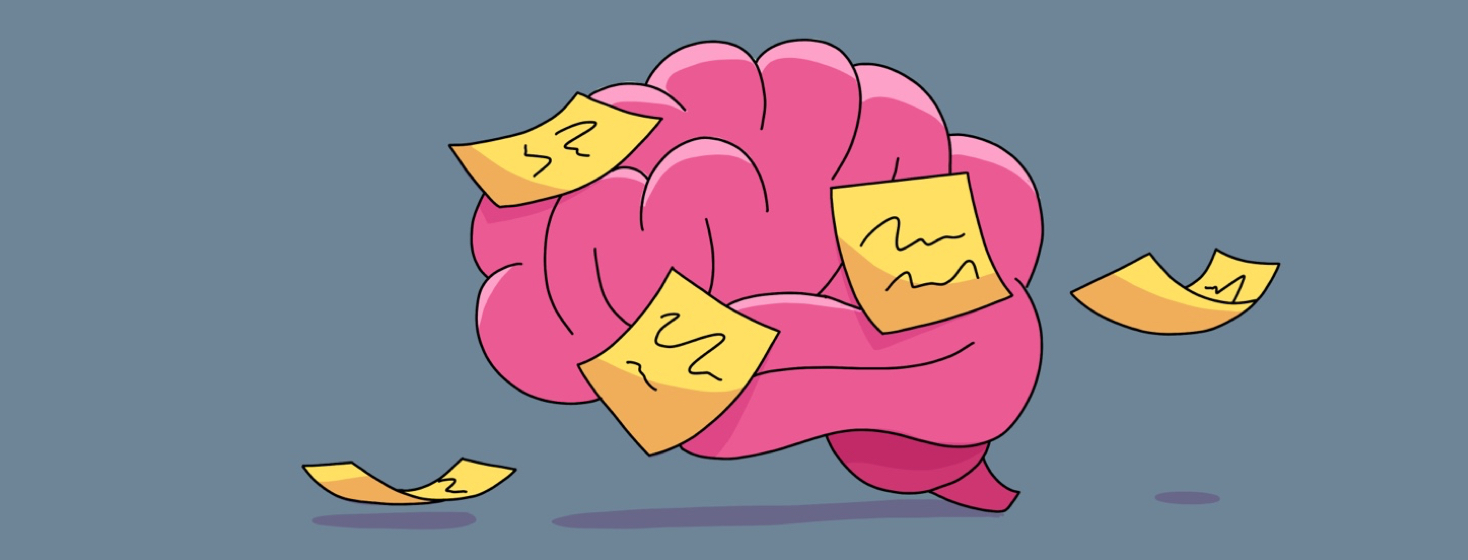Community Views: Managing Brain Fog
Living with narcolepsy involves managing a variety of symptoms. The most common symptoms are excessive daytime sleepiness, cataplexy, and sleep paralysis.1
Featured Forum
View all responsesMany people with narcolepsy also experience brain fog. Brain fog is the inability to focus or concentrate on conversations or tasks. Seeking to shed more light on this symptom, we recently turned to our Facebook community and asked: “Is brain fog something you experience? How do you deal with it?”
Here are some of the helpful reflections you shared.
Write it down
Many of you shared that you compensate for the brain fog by writing things down. Calendars, sticky notes, whiteboards, chalkboards, notebooks, phone apps – no matter what you use, writing helps you keep track when you cannot trust your brain to remember an appointment or password.
“The most effective thing for me is having a whiteboard hanging up on my bedroom wall. This way, I can rub things out easily, write quickly, and it’s always visible.”
“Post-its placed where I’ll see them is what helps me.”
“Lots of notes, calendar entries, and read-aloud functions on computer apps.”
Dealing with the fear of early-onset dementia
When unfamiliar with the concept of brain fog, the symptoms can be terrifying. Forgetting words, blanking on names or appointments, or the inability to remember a conversation from 5 minutes prior often result in worry about dementia. While it is always important to rule out that possibility with a doctor, many of you were relieved by this discussion about brain fog.
“When I get brain fog, I get very scared thinking I am going to have dementia or Alzheimer’s at a young age.”
“Thank you for commenting on brain fog. I thought I was on my way to the dementia unit I work on!”
“It was actually a relief to know there is a legitimate reason for it. For someone who never forgot anything, it concerned me when I started being unable to remember things.”
Diet and exercise
Reaching for a pick-me-up also helps many of you cope when brain fog sets in. Sugar and caffeine can provide the boost you need to get you through the sluggish feeling. You also shared that maintaining a healthy diet and exercise routine can mitigate foggy episodes.
“Upwards of 1000 mg daily of caffeine.”
“If I eat healthier, like my ‘super salads,’ both my physical and mental energy can go up significantly.”
“Really no way to deal with it, other than reach for caffeine or something sweet.”
“Stretch, stand, water, and exercise.”
Find a way to laugh
Many of you shared that you choose humor to cope with the embarrassment of brain fog. You feel self-conscious asking to repeat a question, forgetting words, and missing chunks of a conversation. Often the easiest way to cope is with humor.
“I made jokes to deal.”
“I often make a joke out of it if I have to ask about something a second or third time. Something along the lines of getting older. Many times, I find that is easier than trying to explain narcolepsy.”
Radical acceptance
Acknowledging that you have brain fog and extending compassion to yourself without judgment or frustration is an approach some of you shared. Narcolepsy is part of you. Some days that means symptoms slow down your mental capacity, and that is okay.
“First thing is to try to practice realistic self-talk. Today feels slower. Get comfortable with 'I don’t know' as an answer. It’s good to communicate that you need extra support and will likely ask tasks to be repeated.”
“When I find myself forgetting things, I stop where I am, take a deep breath, take a couple of seconds to get myself together, and try to keep going.”
We are grateful to everyone for engaging with this prompt! Thank you for the insights you provided.
Want to see more articles like this? Browse our collection of Community Views articles and read more stories and advice from the narcolepsy community by clicking the button below!

Join the conversation